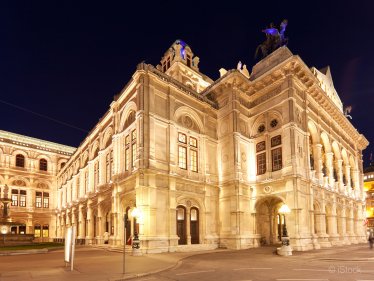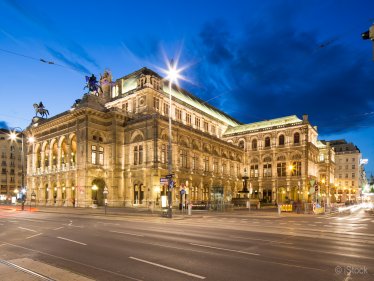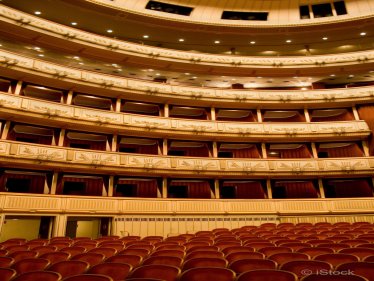Il Barbiere di Siviglia - Schedule, Program & Tickets
Il Barbiere di Siviglia
Text by Cesare Sterbini after Pierre Augustin Caron de Beaumarchais
Comic opera in two acts
Musical direction
Michele Mariotti
Staging and stage
Herbert Fritsch
Costumes
Victoria Behr
Light
Carsten Sander
Count Almaviva
Alasdair Kent
Bartolo
Paolo Bordogna
Rosina
Patricia Nolz
Don Basilio
Peter Kellner
Figaro
Boris Pinkhasovich
Ambrogio
Ruth Brewer
Marcellina (Berta)
Aurora Marthens
Contents
The barber of Seville presents himself as the »factotum of the whole city«: as a helper in all situations. Like all barbers of his time, he was not only responsible for caring for the beard and hair, but also for pulling teeth and letting blood. In addition, Figaro's offer also includes services for lovers and those willing to marry, such as clandestine delivery of letters or commissioned serenades.
Despite his self-promotion, Figaro's ideas prove unhelpful when he is tasked with helping Count Almaviva win the hand of Rosina. Rosina lives locked up with her guardian Bartolo, who wants to secure her fortune by marrying her himself. All of Figaro's plans for how Almaviva could get closer to his beloved fail in what is – for the audience – the most amusing way. Ultimately, money and power make the Count the victor in this fight, which is a game for himself but bitter seriousness for Bartolo.
The opera was originally called Almaviva, o sia L'inutile precauzione (Almaviva or Useless Caution) - so the main character was Count Almaviva. However, public love quickly focused on the extroverted barber. A contributing factor was that the Count's great aria »Cessa di più resistere« was often omitted because of its length and immense difficulty. In fact, it is not the barber's escalating strategies, but the nobleman's means of power that help his love to victory.
The opera is based on the play of the same name by Pierre-Augustin Caron de Beaumarchais, which premiered in 1775. He transformed character types and plot elements of the Italian impromptu comedy, the Commedia dell'arte, first into an opera comique, then into a prose comedy, which also included impressions of a trip to Spain. The play later became the first part of Beaumarchais' Figaro trilogy.
The opera also owes its enormous stage impact to the libretto by Cesare Sterbini, which provided Rossini with ideal musical occasions, including one of his famous ›crescendo rolls‹: in his »slander aria«, Bartolo’s ally Basilio traces in detail the development of a rumour, from a soft whisper to the explosion of a ›shitstorm‹. And in the finale of Act I, the text of the opera conjures up the image of a »hell forge«, which the music gleefully paints with the sound of hammers and anvils.
Subject to change.
Comic opera in two acts
Musical direction
Michele Mariotti
Staging and stage
Herbert Fritsch
Costumes
Victoria Behr
Light
Carsten Sander
Count Almaviva
Alasdair Kent
Bartolo
Paolo Bordogna
Rosina
Patricia Nolz
Don Basilio
Peter Kellner
Figaro
Boris Pinkhasovich
Ambrogio
Ruth Brewer
Marcellina (Berta)
Aurora Marthens
Contents
The barber of Seville presents himself as the »factotum of the whole city«: as a helper in all situations. Like all barbers of his time, he was not only responsible for caring for the beard and hair, but also for pulling teeth and letting blood. In addition, Figaro's offer also includes services for lovers and those willing to marry, such as clandestine delivery of letters or commissioned serenades.
Despite his self-promotion, Figaro's ideas prove unhelpful when he is tasked with helping Count Almaviva win the hand of Rosina. Rosina lives locked up with her guardian Bartolo, who wants to secure her fortune by marrying her himself. All of Figaro's plans for how Almaviva could get closer to his beloved fail in what is – for the audience – the most amusing way. Ultimately, money and power make the Count the victor in this fight, which is a game for himself but bitter seriousness for Bartolo.
The opera was originally called Almaviva, o sia L'inutile precauzione (Almaviva or Useless Caution) - so the main character was Count Almaviva. However, public love quickly focused on the extroverted barber. A contributing factor was that the Count's great aria »Cessa di più resistere« was often omitted because of its length and immense difficulty. In fact, it is not the barber's escalating strategies, but the nobleman's means of power that help his love to victory.
The opera is based on the play of the same name by Pierre-Augustin Caron de Beaumarchais, which premiered in 1775. He transformed character types and plot elements of the Italian impromptu comedy, the Commedia dell'arte, first into an opera comique, then into a prose comedy, which also included impressions of a trip to Spain. The play later became the first part of Beaumarchais' Figaro trilogy.
The opera also owes its enormous stage impact to the libretto by Cesare Sterbini, which provided Rossini with ideal musical occasions, including one of his famous ›crescendo rolls‹: in his »slander aria«, Bartolo’s ally Basilio traces in detail the development of a rumour, from a soft whisper to the explosion of a ›shitstorm‹. And in the finale of Act I, the text of the opera conjures up the image of a »hell forge«, which the music gleefully paints with the sound of hammers and anvils.
Subject to change.
There are no products matching the selection.




